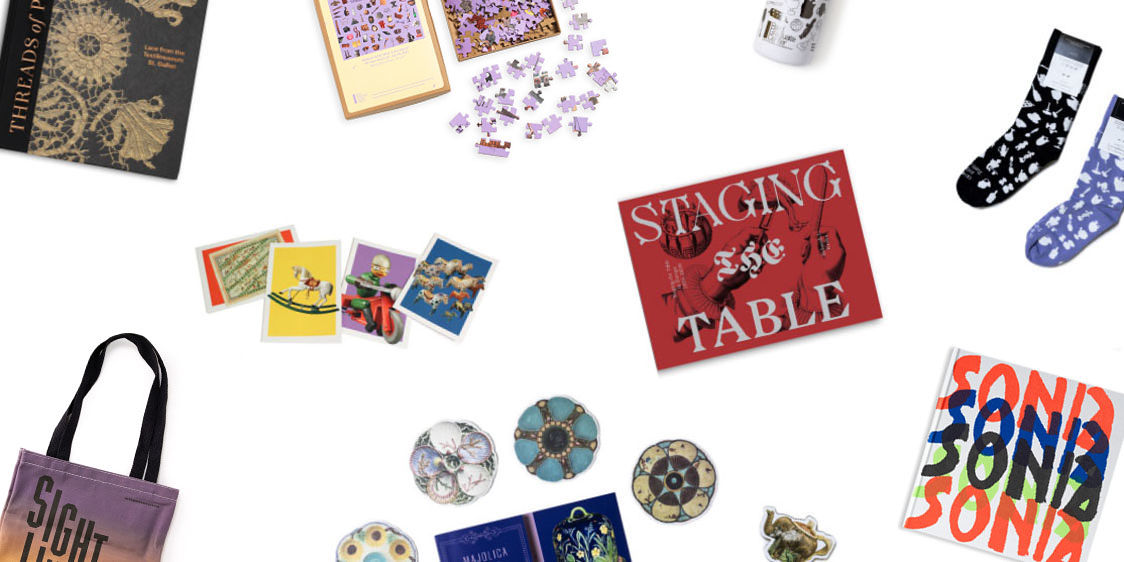
Nishtha Dani (right) with her mentor Elizabeth Dospěl Williams, curator of Byzantine art at Dumbarton Oaks.
This past summer, I had the incredible opportunity to intern at Dumbarton Oaks in Washington, DC, an experience that was nothing short of transformative. As part of Bard Graduate Center’s internship program, which connects students with hands-on experiences at cultural institutions worldwide, I spent six weeks working with the curator of Byzantine art, Elizabeth Dospěl Williams, on an exhibition rotation featuring late antique and early medieval textiles. From curatorial research to label writing and conservation discussions to exhibition planning, my time at Dumbarton Oaks deepened my understanding of museum work and textiles as key elements of the medieval world.
One of the most rewarding aspects of my internship was collaborating with experts from various museum departments. I worked alongside textile conservators, curators, exhibition designers, and the museum team and gained insight into every step of the exhibition making process. Additionally, I conducted primary research for my Qualifying Paper (the capstone project of the MA program), focusing on mirrored images in Seljuq silks. Observing textile fragments in person at the Textile Museum in Arlington, Virginia, with curator Dr. Sumru Belger Krody, enabled me to incorporate these objects into my study of Iranian mirrors and their afterlives in the twelfth and thirteenth centuries.
My experience was just one of many facilitated by BGC’s internship program, which enables students to tailor their summer experiences to their research interests and career goals. Thanks to associate professor and director of master’s studies Meredith Linn and senior manager of academic programs Julia Cullen, who curates a weekly newsletter of opportunities, students have access to a vast network of institutions eager to work with them. Over the years, BGC students have interned in over 250 cultural institutions worldwide, supported by funding that helps cover housing and travel expenses.
Learning New Research Skills

Homepage of Daniela’s Digital Project.
For Daniela Diaz Blancarte, working at Raby Castle in Durham with the British and Irish Furniture Makers Online and the Furniture History Society was an exercise in historical detective work. Over the summer, she embarked on the ambitious project of digitally reimagining the lost dining hall of Cleveland House, the former city residence of the Dukes of Cleveland. Daniela had to rely primarily on archival documents and estate records to reconstruct an accurate visual rendering of the space without any available photographs. She shared, “Our work often consisted of making assumptions or inferences and backing them up as rigorously as possible. It was a completely new way of working for me.” The experience expanded her understanding of digital humanities and archival interpretation.
Creative Inspiration and Artist Legacies

Ev Christie at the Elsworth Kelly Studio, New York.
As a trained artist and longtime admirer of Ellsworth Kelly’s work, Ev Christie spent three months as an archival research intern at the Ellsworth Kelly Studio in Chatham, New York. Ev was mainly involved in a mix of art conservation, sculpture documentation, and digital imaging. They describe the experience as a chance to “slow down, reflect on artistic work, and understand its real-world implications.” Working closely with NYU conservation students, Ev gained insight into the meticulous process of preserving and interpreting an artist’s legacy.
Museums and Community Engagement

Elana at the Pitt Rivers Museum, Oxford, United Kingdom.
Elana Neher’s passion for museum anthropology took her to the Pitt Rivers Museum in Oxford, England, where she worked on community-focused projects in collaboration with the Yukon Arts Council, among other tasks. Her work spanned from public outreach and collections management to digitizing archival letters between Franz Boas and Edward Burnett Tylor. Elana noted how “working directly with Indigenous communities and museum staff really reinforced the importance of ethical curation and representation.” The experience strengthened and expanded the scope of her research on pre-Columbian and Indigenous art from the Americas, allowing her to interact with a broad range of stakeholders in the museum ecosystem and experience museum work in the United Kingdom.
Immersing in Language and Culture

Abby Myers with her teacher Lilit Kholopuzyan in Armenia.
For Abby Myers, the summer was all about deepening her language skills and being on the ground in her field of research. Over the summer, she traveled to Yerevan, Armenia, to study at the Armenian School of Languages and Cultures— ASPIRANTUM. “Learning a language in its native setting was an entirely different experience,” she recounted. The program not only strengthened her grasp of Armenian but also connected her with scholars and provided valuable context for her research. Beyond academics, Abby explored Armenia’s rich cultural heritage through excursions to significant historical sites, blending scholarship with immersive experiences.
The Bigger Picture
Reflecting on the summer’s experiences, Linn highlighted how internships serve as crucial stepping stones for BGC students. She added, “Every year, students push the boundaries of what they can do; whether it’s curating exhibitions, conducting primary research, or developing new digital tools.” Cullen emphasized the importance of mentorship: “Our alumni network plays a huge role in connecting students with institutions. Many of these internships happen because past students have paved the way or alumni have shared interesting opportunities.”
BGC’s internship program isn’t simply about fulfilling a requirement but is about unlocking avenues for new experiences, forging lasting professional relationships, and discovering how research in the classroom comes to life in museums and art-based spaces in the world. My time at Dumbarton Oaks was a pivotal moment in my academic journey, reinforcing my passion for medieval Islamic material culture and museum curation. As I listened to my peers share their own exciting and challenging experiences, I realized the range of opportunities and avenues of work in the field of decorative arts, design history, and material culture. As an essential component of the BGC MA program, the BGC internship program ensures its students are prepared to explore these opportunities successfully.
By Nishtha Dani, second-year MA student











